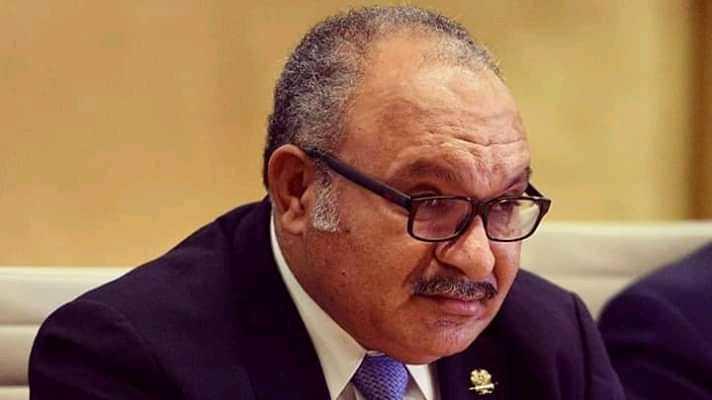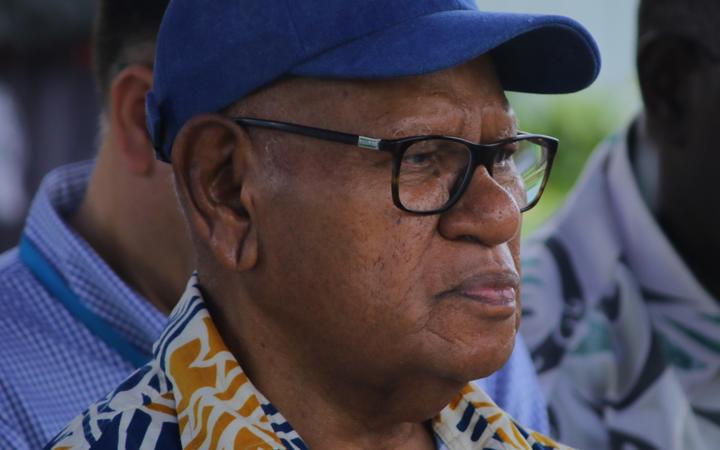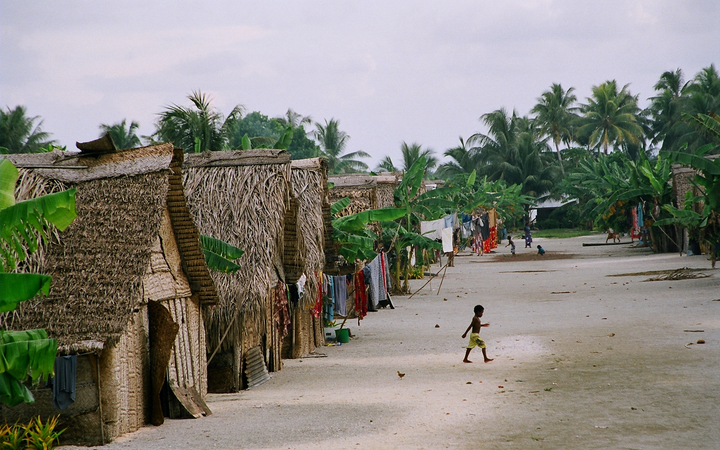Search This Blog
Popular Posts
Total Pageviews
Advertisement
Labels
- ‘Akilisi Pohiva
- 1 December
- 1 Desember
- 1 July
- 1 May
- 1961
- 2 August
- 2023
- 2024
- 2026
- 25 December
- 8l*Indonesia
- ABC News
- Aboriginal
- Aboriginal Tribes
- ACP
- Act of Free Choice
- advice
- Africa
- African history
- Africanism
- agriculture
- air fare
- Air Niugini
- Air Vanuatu
- Alan Bird
- Alien
- ambush
- American Indian
- AMP
- Amunggut Tabi
- ancient Africa
- Andrew Napuat
- Andy Ayamiseba
- anniversary
- Anti Corruption Campaign
- Anti Corruption Commissioner
- anti-corruptipn
- António Guterres
- Anunnaki
- APEC Summit
- Arbitrary Arrest
- arms sales
- AROB
- ASEAN
- Asia
- Asia Oceania
- attack
- Auckland
- Australasian
- Australia
- Australian Government
- Australian Prime Minister
- AWPA
- Bandara Soekarno-Hatta
- Bank Note
- bank robbery
- BAR President
- Basic Human rights
- Bazooka Logo
- beating
- Belden Namah
- Benny Giay
- Benny Wenda
- betel nut
- bio-terror
- bite
- black magic
- Black Sisters
- blonde hair
- Bloody Nduga
- Bloody Wamena
- bloody West Papua
- Bob Loughman
- Bonny Kaiyo
- border agreement
- border issues
- Border Security
- Bougainville
- Bougainville Autonomous Region
- Bougainville crises
- Bougainville independence
- Bougainville Referendum Commission
- Bouganville
- boycott
- Brimob
- British Government
- BSP
- Buchtar Tabuni
- C24
- Cabinet Minister
- Cabinet Reshuffle
- Cannibals
- Capitalism
- carbon emissions
- Caretaker Government
- Caribbean
- Carribean
- Cartenz
- casino
- Catholic Bishops Conference
- caucasians
- CBO
- CCTV
- ceasefire
- Central Province
- chaos
- character
- Charlot Salwai
- Charlot Salwai Tabimasmas
- chemical weapon
- China
- China Aid
- China and Vanuatu
- Chinese Aid
- Christian Church
- Christianity
- Christmas Greetings
- Church support
- Civil Society Organisation
- Civilisation
- clean government
- Clean Water
- Climate Action Pacific Partnership
- Climate Action Summit
- Climate Change
- Climate Justice
- coal mining
- Coffee Association
- colonialism
- colonisation
- colonization
- Communique
- Communiqué
- compensation
- Condolences
- conflict resolution
- Congo
- Congratulations
- conservation
- Constantinopel Ruhukail
- Constituancy allocation
- Constituency Councillor
- constitutional amendment
- corruption
- cossuption case
- Council of Chiefs
- Court Application
- Court Case
- court order
- crackdown
- crime
- criminal
- Criminal Gsngs
- Crowne Plaza
- Cultural genocide
- cultural ties
- Culture and Identity
- currency exchange
- Custom Governance
- custom house
- Customary Lands
- customary law
- Customary Laws
- Customary Senate of New Caledonia
- cyber security
- cyberspace Vanuatu
- cyclone Vanuatu 🇻🇺
- David Manning
- Deadly unrest
- death
- Decolonisation
- Defence Agreement
- Defence Cooperation
- Defence Cooperation Agreement
- Defense Agreement
- Defense Alliance
- deforestation
- Deiyai Regency
- democracy
- demonstration
- Den Haag
- Denmark
- Department Ministers
- Department of Climate Change
- Deputy Prime Minister
- Detention Centre
- development
- Development Project
- dialogue
- Diet
- diplomacy
- diplomatic relations
- diplomatic ties
- DNA
- domestic flights
- Donald Trump
- double murder
- drink and drive
- drunk driver
- dukungan Afrika
- dukungan Karibea
- dukungan Pasifik
- earthquake
- East Sepik
- East Timor
- Eastern Highlands
- Eastern Highlands Province
- Economic Mismanagement
- Edison Waromi
- Egypt 🇪🇬
- Ekianus Kogeya
- Electric Car
- Embassy
- emergency employment
- Enga
- Enga Province
- Environment Protection
- ESCAP
- Ethiopia
- European
- European Union
- eviction activities
- Exim Bank
- extractive industry
- Facebook Business
- farewell
- Father Walter Lini
- Father Walter Linni
- Featured
- Federated States of Micronesia
- Fiji
- Fiji - China Relations
- Fiji Government
- Fiji NGOs
- fiji politics
- Fiji Prime Minister
- Fiji Prime Minister l
- Fijian Government
- Fijian Prime Minister
- Finland
- FIPIC Summit
- first nations
- flag raising
- FLNKs
- food imports
- Football Federation
- foreign aid
- foreign debt
- forgery
- Forum SG
- founding fathers
- France
- Frank Bainimarama
- Fred Christian Mambrasar
- Freddy Waromi
- Free
- Free Melanesia
- Free Trade Agreement
- Free West Papua
- freedom of expression
- Freedom of Oxford
- freedom of press
- French
- French Polynesia
- FRI West Papua
- Fuel Price
- fuel service
- fuel supply
- fund raising
- funeral
- futsal stadium
- Gary Juffa
- GDP
- General Elections
- Genocide
- Geography Map
- George Saa
- gerilya Papua Merdeka
- global politics
- Global Support
- Global Warming
- Gmail
- good deed
- good example
- Good Governance
- good people
- governance system
- Government of Vanuatu
- Government Parliamentary
- Government policy
- Governors Conference
- guerrilla
- Gulf Province
- Gunmen
- hand made fun
- Happy Index
- Heads of Governments
- Hela Province
- help
- herb
- hero
- Hilda Lini
- history
- Hitadipa
- home ownership scheme
- Honiara
- hospital
- hostage diplomacy
- Housing System
- Huli
- human
- human rights
- human rights abuses
- Human Rights Campaigner
- Human Rights Council
- Human Rights Institution
- Human Rights Violations
- Human Rights violations l
- Human Rights Watch
- humanitarian crises
- hunger
- hut
- hydro power
- ia Boe Samuel
- Iche Murib
- ICJ
- identity
- IFTTT
- IJC
- illegal occupation
- Immigration Department
- imprisonment
- independence
- independence activists
- independence anniversary
- Independence celebration
- independence Declaration
- independence referendum
- India
- Indian Ocean
- Indian Prime Minister
- Indigenous Melanesians
- Indigenous Papuans
- Indigenous peoples
- Indigenous Rights
- indigenous rituals
- Indo Cyber Army
- Indo Militias
- Indoneian Prisoner
- Indonesia
- Indonesia l
- Indonesia Nazis.
- Indonesian elections
- Indonesian Military conduct
- infrastructure revolution
- Intan Jaya
- intelligence agent
- international flights
- International Support
- interogation
- Ishmael Kalsakau
- Islamic militia
- isolation
- Israel
- Italy
- Jacob Rumbiak
- Jakarta
- James Marape
- James Marape l
- James Nomane
- Java Island
- Jeremiah Menele
- Jerusalem
- JIhadist
- Joe Natuman
- John Momis
- John Tekwe
- Joint Statement
- Joko WIdodo
- Justin Tkatchenko
- kagamuga airport
- Kanak
- Kanaky
- kantor imigrasi
- Karuka
- Kausea Natano
- Kava
- Kava Business
- Kenya
- Kerenga Kua
- killer
- killing
- Kina
- Kiribati
- Kiwi Pilot
- KNPB
- Kokoda Track
- Komisi HAM PBB
- Kongres ULMWP I
- Kopassus
- Kota Jayapura
- KTT MSG
- KTT ULMWP
- La-Pago
- labour mobility
- Lae
- land grab
- Land Lease
- land rights
- Landowners
- law enforcement
- Leonard Louma
- LGBTQ
- Life Experience
- Lini Day Celebration
- living expenses
- Logging
- Loh
- Lohia Boe Samuel
- looting
- looting l
- Lora Lin
- Lora Lini
- loyalists
- Lukas Enembe
- Lutheran Church
- Lutheran Renewal Church
- MACFEST
- Madang
- Malvatumauri Council of Chiefs
- Manaseh Sogavare
- Manasseh Sogavare
- marginalisation
- Maroke
- Marshal Islands
- Mathew Wale
- Mathias Wenda
- Matthew Wale
- Mauritius
- Media Opinion
- Media Statement
- medical marijuana
- Mee-Pago
- Melaneaian Way
- Melanesia
- Melanesia Business
- Melanesia DNA
- Melanesia Politics
- Melanesian
- Melanesian Arts and Cultural Festival
- Melanesian Culture
- Melanesian Culture and Arts Festival
- Melanesian Cup
- Melanesian Festival
- Melanesian governments
- Melanesian Religion
- Melanesian Spearhead Group
- Melanesian Sport
- Melanesian Way
- Melanesian Wisdom
- Melanesian Women
- Melanesians
- Melayu
- Member of Parliament
- Members of Parliament
- Michael Somare
- Micronesia
- Micronesian
- Middle East
- Mikronesia
- militarisation
- militarism in West Papua
- Military Base
- military forces
- military invasion
- military operation
- Mining Act
- mining operations
- Minister for Education
- Minister for Indigenous Affairs
- Minister of Land
- Minister Richard Maru
- mobile app
- Mobile Squad
- modernisation
- modernization
- Modular House
- money diplomacy
- money politics
- Monkeys vs Humans
- Morata 1
- Moresby North West
- Moringa
- Moris Kaloran
- Morning Star Flag
- Morobe
- Morocco 🇲🇦
- most of the mosy
- motion of no confidence
- MotuKoita
- Mount Hagen
- MP resignation
- MSG
- MSG Caucus
- MSG Director-General
- MSG Leaders
- MSG Leaders Summit
- MSG Leaders' Summit
- MSG Membership
- MSG Office
- MSG Prime Minister Cup
- MSG Secretariat
- MSG Secretary-General
- MSG Summit
- murder
- name
- Nation State
- National Capital District
- national census
- National Development
- National Farmers Association
- national referendum
- Natural Disaster
- nature speaks
- Nauru
- NCD
- NCD Governor
- Nduga Regency
- Ndugama
- Nederland
- neo-colonialism
- New Caledonia
- New Guinea
- New York Agreement
- New Zealand
- Newmont
- NGOs
- ni-Vanuatu
- Nicolaas Jouwe
- Niger
- Nigeria 🇳🇬
- Noah's Ark
- NRFPB
- NRFWP
- NRL
- NZ Prime Minister
- Oceania
- Octovianus Mote
- Official Speech
- OHCHR
- Ok Tedi Mine
- on-line business
- Open Letter
- opinion
- OPM
- opposition leader
- Oridek Ap
- Oscar Temaru
- Otto Ondawame
- Oxford City Council
- Pacific Churches
- Pacific Conference of Churches
- Pacific Council of Churches
- Pacific Council of Churhes
- Pacific countries
- Pacific Forum summit
- Pacific Island Nations
- Pacific Islands
- Pacific Islands Countries
- Pacific Islands Forum
- Pacific Nations
- Pacofic Ocean
- Palau
- Palawan
- Palestine
- Palm Oil Plantation
- Pandanus
- PANG
- Papeda
- Papindo
- Papua New Guinea
- Papua Governor
- Papua Merdeka
- Papua New Guinea
- Papúa New Guinea
- Papua New Guinea 🇵🇬
- Papua New Guinea l
- Papua New Guineq
- Papua Nugini
- Papua Presidium Council
- Papuan MPs
- Papuan Students
- Parliamentary Debate
- PASKHAS
- paspor
- Passport
- pastor
- PCC
- Peaceful Demonstration
- pemanasan bumi
- pembunuhan
- Pemilu
- pemukulan
- penembakan
- peracunan
- Perspective on Melanesia
- perubahan iklim
- Peter O'Neil
- Peter O'Neill
- Peter O’Neill
- Peter O'Neilly
- petition
- Phillip M. Martens
- PIDF
- PIF
- PIF Communique
- PIF Foreign Ministers
- PIF Secretariat
- PIF Secretary-General
- PNG
- PNG - Indonesia Border
- PNG Army
- PNG Churches
- PNG Constitution
- PNG Development
- PNG Foreign Minister
- PNG Foreign Policy
- PNG Government
- PNG MPs
- PNG Opposition Leader
- PNG Parliament
- PNG Police
- PNG Police Commissioner
- PNG Power
- PNG Prime Minister
- PNG Prime.Mimister
- PNG Support
- PNG supports
- PNGDF
- poem
- Poet Moresby
- Police Commissioner
- police force
- Police Minister
- police terror
- political instability
- Political party
- political prisoner
- Polri
- Pop Francis
- Pope Francis
- population data
- Porgera Mine
- Port Moresby
- Port Numbay
- Port Vila
- Post-referendum
- Poultry
- Power Transmission Line
- PowerPoint Parkop
- Powes Parkop
- President Joe Biden
- President Sementara ULMWP
- Prime Minister
- prisoner news
- Provisional Government
- Puma Energy
- quadruplets
- Queen Elizabeth Barbados
- racism
- Radio New Zealand International
- Rainbo Paita
- Rainbow Paita
- rally for West Papua
- Ralph Regenvanu
- Rascal
- Rascol
- referendum
- Referendum Commission
- Refugee
- refugee camp
- refugees
- regional politics
- regional politics l
- Regional Support
- regional violence
- regionalism
- Religion
- Republic of South Moluccas
- Republic of Vanuatu
- Republic of Vanuatu 🇻🇺
- Republic of West Papua
- resignation
- Rest in Peace
- Richard Maru
- riot
- riot l
- riots
- robbery
- robbery store owner
- Robert Mugabe
- royalty
- Rugby Union
- Russia
- sago
- Saireri Region
- Sam Koim
- Samoa
- sandera
- Santa Cruz massacre
- Santo Island
- Saralana Park
- satellite
- Satellite-One
- Save the Pacific
- Scam Business
- Scott Morrison
- seasonal worker
- Security Agreement
- security pacts
- SekJen PBB
- Self-Determination
- separatist
- Shadow Attorney General
- shadow government
- Shefa Province
- shoot our
- shooting
- SI Prime Minister
- SINU
- SIPRA
- Sir Peter Ipatas
- Sitiveni Ligamamada Rabuka
- Sitiveni Rabuka
- SkyUp
- snake
- solar power
- solidarity
- Solidarity for West Papua
- solidarity movements
- Solomon Island Prime Minister
- Solomon Islands
- Solomon Islands Government
- Solomon Islands Politics
- Solomon Islands Prime Minister
- Solomon Star
- sorcery
- sorcery killer
- Sorong - Samarai
- South Africa 🇿🇦
- South Korea
- South Pacific
- South Pacific Forum
- South Pacific Island Nations
- Southern Highlands
- special autonomy
- speech
- Sport
- state budget
- State Terror
- statute
- Stop and Shop
- stories
- storyline
- strong wind
- summit
- Support for West Papua
- support from Indonesia
- Tari
- Tari Pori
- Tax Revenue
- teladan
- telecommunications
- telefomin
- Terror Negara
- Terror Polri
- Terror TNI
- the Malenesian Way
- ticket fare
- Timika
- Timor Leste
- Timothy Andrew l
- TNI
- TNI Operations
- TNI Terror
- TNPB
- Tom Beanal
- Tonga
- Torture
- TPN PB
- TPN/ OPM
- TPNPB-OPM
- Trade Union
- trade war
- traditional house
- Transparency International
- Tree Planting
- Tuvalu
- twins
- UBS Loan
- UK
- UK High Commissioner
- UK Parliament
- Ukraine
- ULMWP
- ULMWP Regional Leaders
- ULMWP Congress
- ULMWP Constitution
- ULMWP Membership
- ULMWP Provisional Government
- UN
- UN Bodies
- UN Decorations Committee
- UN General Assembly
- UN High
- UN High Commissioner for Human Rights
- UN Human Rights Commission
- UN Human Rights Council
- UN Human Rights Experts
- UN Resolution
- UN Secretariat-General
- UN Secretary-General
- UN votes
- Uncategorized
- unfair trial
- UNGA
- UNHRC
- United Kingdom
- United Nations
- United Stares
- United States
- United States of America
- UNPG
- UPMWP
- Urban Development
- urbanization
- US
- US Government
- US Military Base
- USA
- UUDS
- VANGO
- Vanimo
- Vanuatu
- Vanuatu - China Relation
- Vanuatu 🇻🇺
- Vanuatu Chamber of Commerce
- Vanuatu Foreign Minister
- Vanuatu Foreign Policy
- Vanuatu Government
- Vanuatu Parliament
- Vanuatu Passport
- Vanuatu Prime Minister
- Vanuatu Support
- Vanuatu Visa
- Vanuatu West Papua Support Group
- Vatican
- Veronica Koman
- VFWPA
- Vice-Minister
- Video
- violence
- violent conflict
- violent protest
- visas
- Voice of the Church
- VONC
- Voreqe Bainimarama
- Vote of no confidence
- VYWC
- Walk For Life
- Wamena
- Wantok Democracy
- Water Supply
- WCC
- West Irian
- West Papua
- West Papua - PNG Border
- West Papua Army
- West Papua Council of Churches
- West Papua diaspora
- West Papua Highlands
- West Papua Independence
- West Papua killings
- West Papua Petition
- West Papua Refugees
- West Papuan Refugee
- West Papuan Refugees
- West Ppaua
- West Sepik
- western colonialism
- Western Highlands
- Western Influence
- Wewak
- wise
- wisudawan
- witness
- Women in Parliament
- work visa
- Workshop
- World History
- World War II
- worship
- WPA
- WPCC
- WPRA
- Wutung
- WWII
- Yamin Kogoya
- Yemen
- youth
Blog Archive
-
▼
2019
(293)
-
▼
November
(15)
- ���� Papua: Neglect threatens remote Indonesian tr...
- Pole jailed in Indonesia’s West Papua faces ‘decli...
- WPRA: Happy National Awakening Day!
- Bougainville referendum: voting begins amid scenes...
- Powes Parkop on Bougainville Referendum: A Histori...
- Bougainville: World’s newest nation expected to fo...
- PNG’s O’Neill sounds warning on eve of Bougainvill...
- PNG leaders cautious ahead of Bougainville vote
- Expectations high as Bougainville referendum gets ...
- Bougainville vote results to be delivered in one a...
- Bougainvilleans encouraged to prepare for post-ref...
- Former Bougainville president backs independence
- Bougainville Referendum: Applications for postal v...
- Solomons boost border security for Bougainville re...
- Referendum offers possibility of change for Bougai...
-
▼
November
(15)










